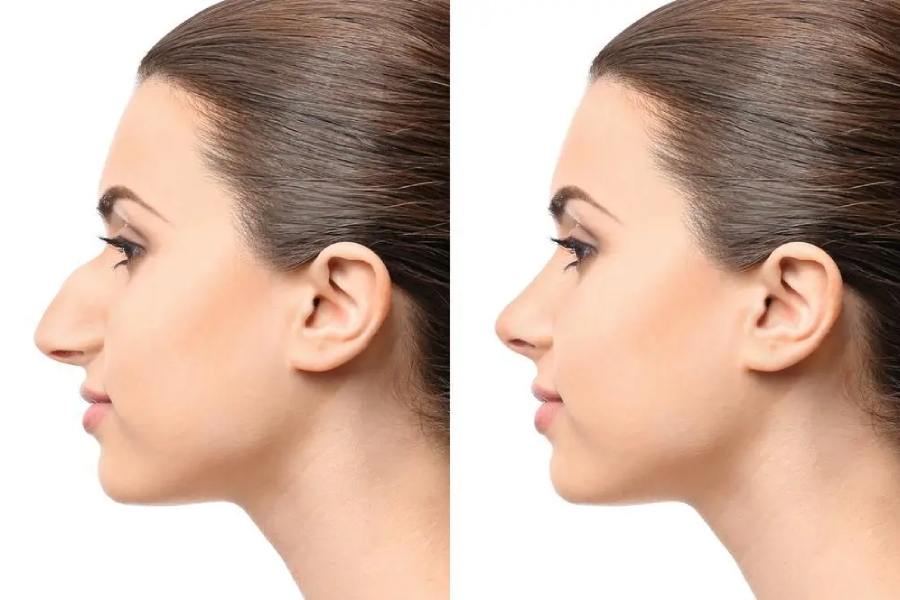
What is Rhinoplasty?
Rhinoplasty is a surgical procedure commonly referred to as a “nose job.” It involves reshaping or resizing the nose to improve its appearance or function.
There are various reasons why someone might undergo rhinoplasty:
1. Cosmetic Purposes: Many people seek rhinoplasty to alter the appearance of
their nose. This could involve reducing or increasing the size of the nose,
reshaping the tip or bridge, narrowing the nostrils, or correcting asymmetry.
2. Functional Reasons: Rhinoplasty can also be performed to address breathing
difficulties or correct structural abnormalities that interfere with nasal function.
This might include correcting a deviated septum (septoplasty) or addressing
nasal valve collapse.
The procedure is typically performed under general anaesthesia or local anaesthesia with sedation. Depending on the specific goals of the surgery, the surgeon may make incisions either inside the nose (closed rhinoplasty) or across the columella (the strip of tissue between the nostrils) in an open rhinoplasty. Through these incisions, the surgeon can access and reshape the underlying bone and cartilage to achieve the desired outcome. After the procedure, patients may experience swelling, bruising, and discomfort around the nose and eyes, which typically subsides within a few weeks. Full results may take several months to become apparent as the swelling resolves and the tissues heal. Rhinoplasty is a highly individualized procedure, and it’s essential for patients to have a clear understanding of their goals and realistic expectations. Consulting with a boardcertified plastic surgeon or facial plastic surgeon is crucial to determine if rhinoplasty is the right option and to develop a personalized treatment plan.
What should i know about my health before going ahead with Rhinoplasty?
One underlying condition that may not be recommended for rhinoplasty is a bleeding disorder or a tendency to bleed excessively. Individuals with bleeding disorders, such as haemophilia or von Willebrand disease, or those taking anticoagulant medications, may have an increased risk of bleeding during and after surgery. This can lead to complications such as hematoma (collection of blood under the skin), prolonged swelling, or delayed wound healing.
Before undergoing rhinoplasty or any surgical procedure, it’s essential for individuals to disclose their complete medical history, including any pre-existing health conditions and medications, to their surgeon. The surgeon will assess the individual’s suitability for the procedure and may recommend precautions or adjustments to minimize risks and ensure a safe surgical outcome

